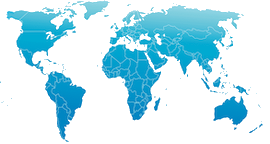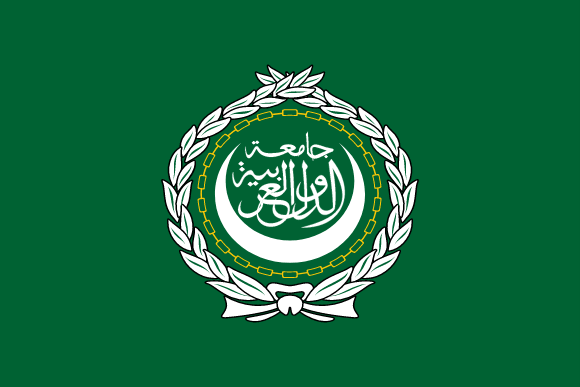middle east


The Middle East is a geopolitical region encompassing the Arabian Peninsula, the Levant, Turkey, Egypt, Iran, and Iraq.
time zones

weather | living earth

The term came into widespread usage as a replacement of the term Near East (as opposed to the Far East) beginning in the early 20th century.
the living earth
الجامعة العربية
the arab league
The Arab League is a regional organization located in Africa and Western Asia. It's headquarters are in Cairo, Egypt.
It was formed in Cairo on 22 March 1945 initially with six members: Egypt, Iraq, Transjordan, Lebanon, Saudi Arabia, and Syria. Yemen joined as a member on 5 May 1945. Today, the Arab League has 22 members, including three African countries among the largest by area (Sudan, Algeria and Libya) and the largest country in Western Asia (Saudi Arabia). Syria's participation has been suspended since November 2011.
The League's main goal is to "draw closer the relations between member states and co-ordinate collaboration between them, to safeguard their independence and sovereignty, and to consider in a general way the affairs and interests of the Arab countries".
arab league members
mashriq nations
ْاَلْمَشْرِق
The Mashriq refers to the eastern part of the Arab world, as opposed to the Maghreb (western) region, and located in Western Asia and eastern North Africa.
It is the Arabic equivalent for the term Middle East.
Poetically the "Place of Sunrise", the name is derived from the verb sharaqa (َشَرَق, "to shine, illuminate, radiate" and "to rise"), from the sh-r-q root (ش-ر-ق), referring to the east, where the sun rises.
united arab emirates yemen
yemen somalia
somalia
maghreb nations
المغرب
The Maghreb is the western part of the Arab world. The region comprises western and central North Africa, including Algeria, Libya, Mauritania, Morocco, and Tunisia. The Maghreb also includes the disputed territory of Western Sahara. As of 2018, the region had a population of over 100 million people.
morocco tunisia
tunisia western sahara
western sahara 
suspended members
Egypt was suspended from the Arab League on 26 March 1979 due to the Egypt–Israel peace treaty, with the League's headquarters moving from Cairo to Tunis, Tunisia.
In 1987, Arab League states restored diplomatic relations with Egypt, the country was readmitted to the League in May 1989 and the League's headquarters were moved back to Cairo in September 1990.
On 20 September 2011, the Arab Parliament recommended suspension of Syria and Yemen over persistent reports of disproportionate violence against regime opponents and activists during the Arab Spring.
Libya was suspended on 22 February 2011, following the outbreak of the First Libyan Civil War.
The Arab League voted to restore Libya's membership on 27 August 2011 by accrediting a representative of the National Transitional Council, which was the partially recognised interim government of the country.
Syria was suspended on 16 November 2011 in the aftermath of the outbreak of the Syrian Civil War.
On 6 March 2013, the Arab League gave the Syrian National Coalition Syria's seat in the Arab League.
On 9 March 2014, secretary general Nabil Elaraby stated that Syria's seat would remain vacant until the opposition completes the formation of its institutions.
In 2021, the Arab League initiated a process of normalisation between Syria and other Arab nations.
On 7 May 2023, at the meeting of the Council of the Arab League in Cairo, it was agreed to reinstate Syria's membership.
non-member states
afghanistan azerbaijan
azerbaijan armenia
armenia
cyprus
kuzey kıbrıs somalia
somalia chad
chad
Chad is the only country (where Arabic is an official language) to remain outside of the League.
In Eritrea, Malta, and South Sudan (where Arabic is not an official language) a dialect of Arabic is spoken by portions of the populations.
non-arab countries
علم منظمة التعاون الإسلامي
organization of islamic cooperation
Founded in 1969, it is the second largest organization after the United Nations with a membership of 57 states, 47 of which are Muslim majority countries, spread over four continents.
The flag consists of a globe inside a green crescent centered on a white background. The black Kaaba at the center of the globe symbolizes the geographical heart of Islam.

It is the collective voice of the Muslim world and endeavors to safeguard and protect the interests of the Muslim world in the spirit of promoting international peace and harmony.
A few countries with significant Muslim populations, such as Russia and Thailand, sit as Observer States.
The Organization was established upon a decision of the historical summit which took place in Rabat, Kingdom of Morocco on 12th Rajab 1389 Hijra (25 September 1969) following the criminal arson of Al-Aqsa Mosque in occupied Jerusalem.
In 1970 the first ever meeting of Islamic Conference of Foreign Minister (ICFM) was held in Jeddah which decided to establish a permanent secretariat in Jeddah headed by the organization’s secretary general. Amb. Hissein Brahim Taha is the 12th Secretary General who assumed the office in November 2021. The first OIC Charter was adopted by the 3rd ICFM Session held in 1972. The Charter laid down the objectives and principles of the organization and fundamental purposes to strengthen the solidarity and cooperation among the Member States. Over the last 40 years, the membership has grown from its founding members of 30 to 57 states. The Charter was amended to keep pace with the developments that have unraveled across the world.
The present Charter of the OIC was adopted by the Eleventh Islamic Summit held in Dakar on 13-14 March 2008 to become the pillar of the OIC future Islamic action in line with the requirements of the 21st century.





















